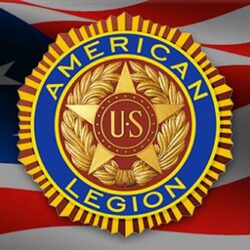This month’s Center for Women Veterans Book Corner author is Navy Veteran Jalesa Heneke, who served as a Cryptologic Technician from 2014-2019. She wrote “When the Miracle Doesn’t Happen,” a book detailing the last year of her mother’s life and the grief journey that followed her mother’s passing. Heneke was born and raised in Memphis, TN, and after graduating from Middle Tennessee State University with a degree in Mass Communications, she enlisted in the Navy. It was in her last year of service that her mother was diagnosed with cancer, while Heneke was navigating a tough transition out of the military.
Can you share a brief background of your military experience, including your branch of service, years served and any notable positions or deployments?
I served a total of five years in the U.S. Navy. I separated as a Petty Officer Second Class. My duty station was at Ft. Meade working at NSA. It was a rewarding experience working in a joint command with all branches and government civilians. I had the honor of being named Junior Sailor of the Quarter for my command and received the Joint Service Commendation Medal at the end of my service.
What inspired you to write a book and share your story as a woman Veteran?
After my mother’s passing, I realized that I didn’t know where or how to start my grief journey, and it was a very isolating journey at times. It made me think that there are many others who are experiencing the same thing and suffering in silence. As women Veterans, we experience a lot of stress in our roles and adding personal challenges like the cancer diagnosis of a loved one can be even more taxing. I wrote this to not only share my story, but to possibly help someone else who has lost a loved one and doesn’t know how to begin to cope.
How has your military background influenced your writing style and the themes you explore in your work?
It’s taught me to be bold and pursue things even when it’s scary.
How do you hope your book will impact other women Veterans, active-duty service members, and the general public?
I hope to inspire others to seek help when they need it, be open and honest about their struggles and find a community that supports them.
What role do you think storytelling and literature play in fostering understanding and support for the women Veteran’s community?
It allows us to realize we share similarities that we can use to support one another.
Can you share a memorable experience or anecdote from your time in the military that has had a lasting impact on your life and writing?
Attitude is everything. How we choose to handle a situation can make or break us.
Are there any fellow women Veteran authors or books that have inspired or resonated with you? If so, could you tell us a bit about them?
I am currently discovering women Veteran authors.
How do you believe the Women Veterans Book Corner can help bring awareness to the civilian and military communities, particularly about women Veterans?
Our stories shed a unique light on our experience, not only in the military but in the world.
What advice do you have for other women Veterans or active-duty service members who may be considering writing about their experiences?
Do it! Your story needs to be heard. You never know whose life you can touch in a positive way.
How has writing this book helped you?
By writing this book, I was able to face my grief and some fears head on in a healthy way.
Can you tell us about any upcoming projects or events you’re involved in that our audience might be interested in?
Working on launching a podcast that talks about travel, being married in the military, grief.
Are you a woman Veteran author, or do you know of one?
If so, please visit our website to find out more information. If you have further questions, contact the CWV Outreach Program Manager, Michelle Terry at 00*@VA.Gov.
